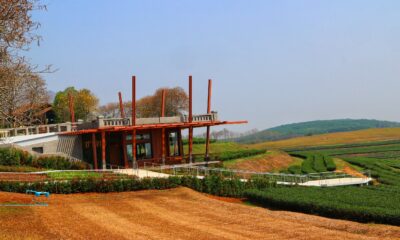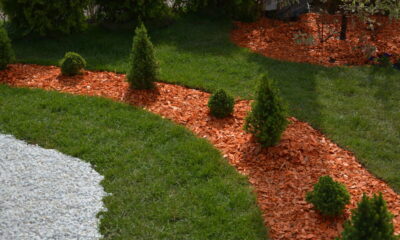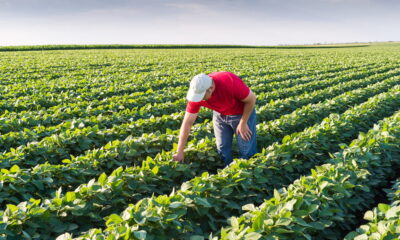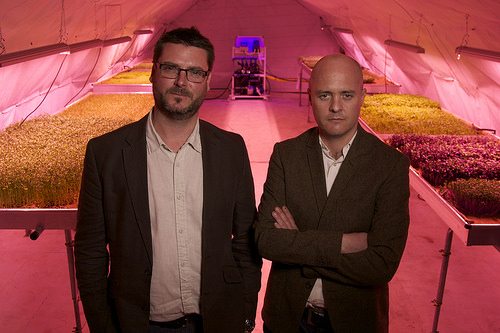

Environment
Growing Underground: London’s secret garden
Many curious things are buried beneath London’s busy streets. The list includes disused tube stations, 17th century plague pits, and – if you believe that sort of thing – the ghost of an ancient Egyptian priestess. The future of farming may be another.
Growing Underground is a carbon neutral farm, a project of the venture Zero Carbon Food. It sits 33 metres underground, four stories below the Northern Line in Clapham, south-west London.
Currently open for investment, the project is housed in a disused second world war bomb shelter. Its vast network of unlit tunnels could protect 8,000 Londoners, and house 4,000 staff such as medics and cooks.
After the war, the site passed through many hands. Now it is owned by Transport for London, from whom Zero Carbon Food rents the space on a 25-year lease.
At the end of one of these tunnels, sheltered in plastic sheeting, glowing with a bright, pinkish hue – only slightly reminiscent of a scene from Breaking Bad – the experiment is taking place.
Zero Carbon Food is currently testing its pioneering system by growing celery, mustard leaf, broccoli, wild rocket and other salads and herbs. The seeds are sown into a fabric made from recycled and low-carbon impact cleaned carpet samples, taken from the Olympic Village.
A hydroponics system waters them, and the plants are then nurtured by 100-watt LED lights. All this is powered by locally sourced renewable energy, and the team talks of plans for new wind and solar PV installations aboveground.
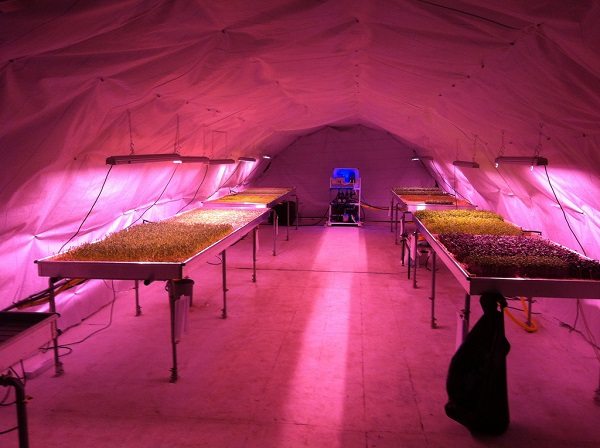 “It is a fairly simple system”, says Steven Dring (pictured, right), a co-founder of the scheme who was named by the mayor of London as one of this year’s ‘London Leaders’.
“It is a fairly simple system”, says Steven Dring (pictured, right), a co-founder of the scheme who was named by the mayor of London as one of this year’s ‘London Leaders’.
“It’s like growing cress when you’re a kid; you get a damp tissue and put some seeds on it, you use a substrate, it gets wet and you stick it under lights. It’s exactly the same.”
Dring and Richard Ballard, the other half of the founding duo, soon plan to expand their range and grow miniature vegetables such as leeks, peppers and carrots for the restaurant market. All produce will be sold within the M25.
Already a variety of buyers have expressed an interest in their produce, and celebrity chef Michael Roux Jr endorses and advises the project.
A presenter on many cooking shows and a chef at the renowned London restaurant Le Gavroche, Roux said, “I thought they were absolutely crazy but when I visited the tunnels and sampled the produce they are already growing down there I was blown away. The market for this produce is huge.”
The team’s first target was to raise £300,000 of investment through the crowdfunding site Crowdcube, offering 15% equity to potential investors. They have already passed this target with another two weeks to go.
Dring says the team is currently considering a variety of investment strategies, while in talks with the World Bank, the World Food Programme, a number of wealthy individuals and even a faraway government.
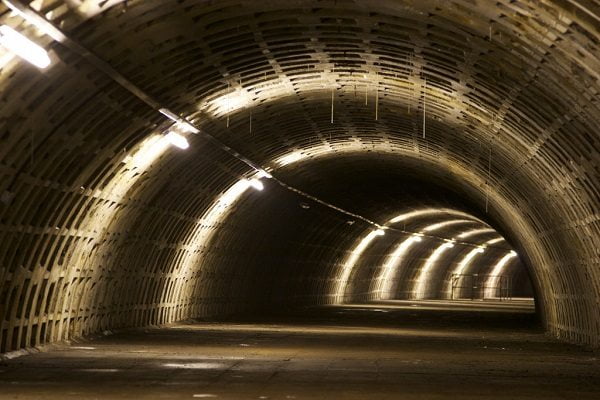 The benefits of growing underground that are generating so much interest, Dring explains, are many.
The benefits of growing underground that are generating so much interest, Dring explains, are many.
“Ultimately, there’s a lot of empty and redundant spaces under our cities, we’re running out of arable land and we’ll continue to run out of arable land as populations grow”, he says.
“This means we’ll have to import more, which means we have less food security.”
Then there’s the temperature. As anyone who has spent an extended amount of time on the Northern Line in summer can attest, at such depths temperatures are consistently warm.
“It’s a constant 16C down here, so the residual heat from the lights brings the temperature up naturally to the 18-22C we need for salad crops”, Dring adds.
“Then there’s the fact we’re protected from adverse weather, we can use renewable energy, we’re shortening the supply chain and cutting food miles, and we can engage with the local community and show them where their food is coming from.”
So far below ground, there is also a welcome shortage of pests, meaning the farm’s produce can remain pesticide free. Dring tells how the team kept an eye out for rats when they first came to the tunnels: “Then the guys from Transport for London came and laughed at us. They said there’s too much food on the surface for them to come down here.”
Concern over food production and security has made headlines in recent weeks. Earlier this month, the World Bank reported that as much as a third of all the food the world produces is wasted or lost.
Researchers have also warned that a decreasingly varied global diet will leave us all more exposed to crop failure, something we will all become more familiar with as climate change takes hold.
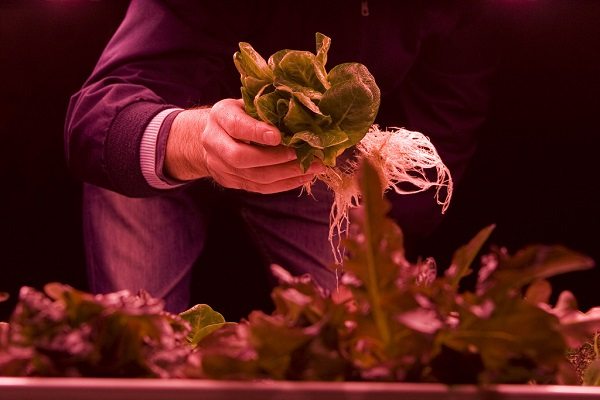 Feeding the world sustainably through the coming decades, as space runs out and the global population reaches 9-10 billion by the end of the century, is one of the greatest challenges we face.
Feeding the world sustainably through the coming decades, as space runs out and the global population reaches 9-10 billion by the end of the century, is one of the greatest challenges we face.
In December, a study backed by the UN found that even if we eliminated food waste and evenly distributed all the food produced in 2009 around the world, then we would still need to sustainably produce 974 more calories per person every day by 2050.
With this considered, the future surely looks bright for ventures such as Zero Carbon Food. We will need bold ideas, and farms in unusual places.
The idea that two entrepreneurs and a refitted second world war bunker can play a part, however small, in meeting the food challenge is a charming one.
“When me and Rich put this together there was three elements, the social element, the sustainable element and there had to be a return for our investors”, Dring says.
He describes a mooted five-year exit strategy that involves the expansion of the current location and the development of other London sites, followed by a possible sale to a fresh produce business.
“However, if we can pay the right dividends, and keep our shareholders happy, we just may continue to grow the brand”, he adds.
“We’ve had investors globally who have said, ‘We’d love to see you take this to Paris into the Metro, or into Germany, and scale it across the UK and Europe. You could make a global brand out of this’.”
So is the sky the limit? “It is”, Dring says, before looking to the bombproof ceiling and the 100ft of London’s underbelly above it. “Or not, as the case may be.”
Further reading:
Reliance on fewer crops will increase climate change food security threat
World wastes up to a third of produced food, says World Bank
Feeding the world sustainably means investing in better solutions


 Environment12 months ago
Environment12 months agoAre Polymer Banknotes: an Eco-Friendly Trend or a Groundswell?

 Features11 months ago
Features11 months agoEco-Friendly Cryptocurrencies: Sustainable Investment Choices

 Features12 months ago
Features12 months agoEco-Friendly Crypto Traders Must Find the Right Exchange

 Energy11 months ago
Energy11 months agoThe Growing Role of Solar Panels in Ireland’s Energy Future
